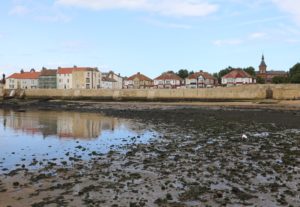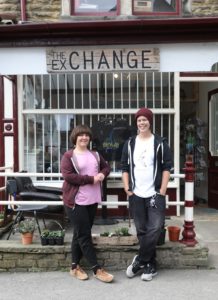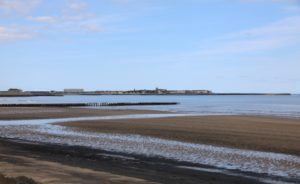Community wealth building by the sea
Jo Bambrough from Morecambe Big Local considers the impact and opportunity for coastal areas to apply community wealth building principles in order to keep wealth local.
Morecambe has for decades now, faced a decline that many coastal towns in the UK will resonate with.
Economic deterioration and austerity cuts have seen money for much needed regeneration efforts pulled. The area has seen essential support services struggle and close their doors and it has seen a migration of the most poor and vulnerable into the former guest houses of the West End for over 20 years and counting.
A once thriving part of town now suffers from high levels of needs combined with a lack of opportunity for education, employment and activities that promote quality of life. Add this to high levels of access to food banks and food clubs and there’s a clear impact in terms of our community hopes and aspirations for the future. Many of our brighter young people leave for larger inland cities at the earliest opportunity.
The role of the Exchange Creative Community
The Exchange Creative Community – CIC – in Morecambe has observed these trends and issues in extensive public consultation increasing a wide lack of engagement and aspiration that’s well demonstrated in local statistics. Despite all this – we have a strong and growing active community of people that are realising we need to find new approaches to improve our area and the experience of those that live here. We pool our resources to make sure there are places for people to come together, to get help and support when they need it and are increasingly working to develop community led strategies that will help improve our economy.
Together we have learnt that property is an important part of the plan and that working together, and collective ownership will make sure that more people benefit from our efforts. We need to try to close the leaks in our economy to stop money passing through and leaving the area without benefiting the people that live here.
Bringing our voice to the table
As part of a week of activities and events focussed on community wealth building, we were invited by Local Trust to contribute to discussions at St. George’s House, Windsor Castle and Toynbee Hall as well as hosting an event here in Morecambe. We invited a range of local partners to begin to explore how we might start to implement learning from the growing evidence base for a shared and inclusive economy. Being part of these events, alongside leading thinkers in this field was an incredible experience and incredibly reassuring.
We’ve used our experiences to create strategies and being able to hear stories from those with more established projects offered real hope, credibility and context to our local experience. In a capitalist society – we must be able to think like a business, to compete with big businesses but organise our structures differently – more equitably for our population. I learnt that businesses with larger ownership models are more robust and stable. Productivity increases when employees have a stake in the business and a ‘good job’ rather than just a job.
I’ve also learnt that a community is more robust when it can meet its needs locally – such as in-house food production and land ownership. The best thing we’ve learnt from this is that we’re not alone in our experience. There’s a movement growing and support out there for communities trying to take back control and increase their prospects in a sustainable way.
Taking our learning back to Morecambe
In Morecambe, we’ve invested a lot of time and resources into developing a feasible set of plans and proposals with Lancaster City Council for the redevelopment of Centenary House to support the growth of community led enterprise, creativity and innovation. This project has the potential to support a journey towards a fairer and more thriving local economy. It will address clear barriers that are currently preventing people from successfully starting and sustaining a business in the area such as affordability, access to resources, equipment and getting vital advice & support when needed.
My reflections on our experience of the community wealth building week are incredibly positive with one caveat; the process cannot begin without the necessary investment and infrastructure. A system that must be twofold – organising and educating on a community level but also a shift in procurement and trade agreements in the public and private sectors to give collectively owned businesses an opportunity to compete.
A better future for everyone?
We know that Morecambe is on the up with increasing talk of new developments and high street funding. It seems the evidence is clear, that an equal amount of investment must be secured and issued in support of community led developments and enterprise.
With £80 million on the cards for Eden North, £25 million high street investment and rumours of a tidal energy barrage across the bay – a different approach to procurement and local investment could create a new golden age for Morecambe and change our narrative for decades to come, but the reality is that without such investment developers and external companies will clearly benefit. The most vulnerable however, face further exaggerated financial hardship and the threat of displacement as prices and rents continue to rise.
Such a risk is simply not necessary – community wealth building offers us an approach to ensure that Morecambe gets the best it can from upcoming investment and benefits the people that time and again have proven their commitment to the town, often against all odds.
This blog is part of a series exploring how community wealth building can work in neighbourhoods.





